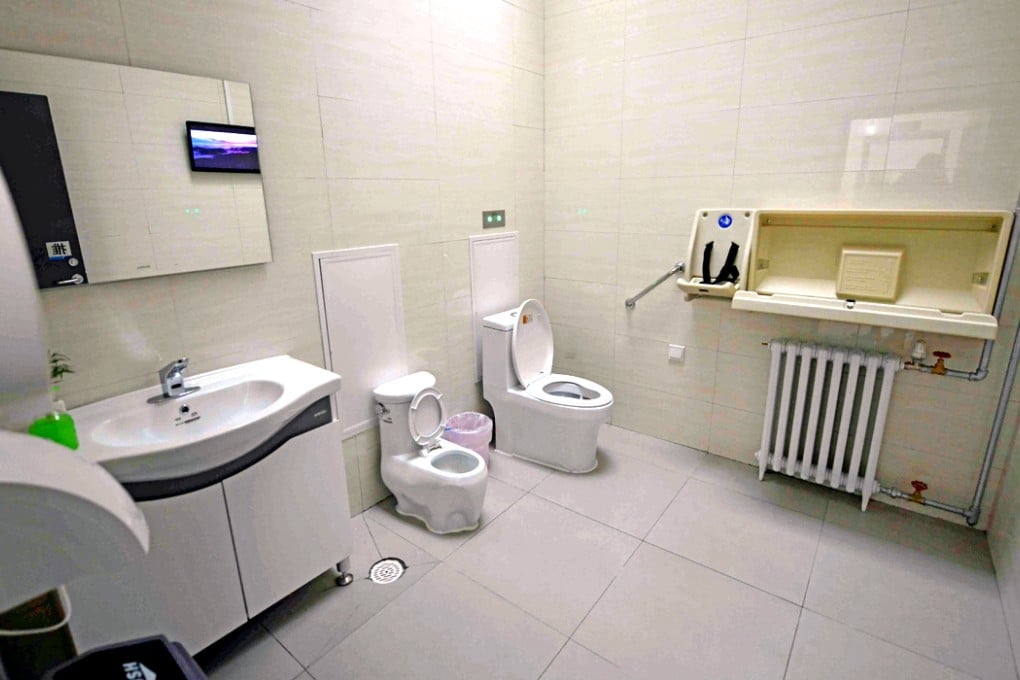Advertisement
China's next revo-loo-tion: Beijing offers glimpse of public toilet offering TV, snacks, cash machines ... and potty training
Reading Time:3 minutes
Why you can trust SCMP

If you want to do more business, watch television, buy a can of drink, or help your young child with potty training - all while visiting a public toilet in China, then help is now at hand.
“Innovation” is the buzzword of the moment in Beijing, with the government putting special emphasis on connecting every part of life to the web to help boost the economy and create jobs.
Now, even the humble public toilet is being prepared for what authorities call the “Internet Plus” era.
Advertisement
In time Thursday’s World Toilet Day, Beijing put on display a prototype public toilet that bears little resemblance - in sight or smell - to the much criticised dirty, unhygienic toilets that many residents and visitors have endured in the Chinese capital.
Read more: The long wait is over: Chinese ‘revo-loo-tion’ means people can use tourist-site toilets within 10 minutes

Advertisement
Advertisement
Select Voice
Choose your listening speed
Get through articles 2x faster
1.25x
250 WPM
Slow
Average
Fast
1.25x